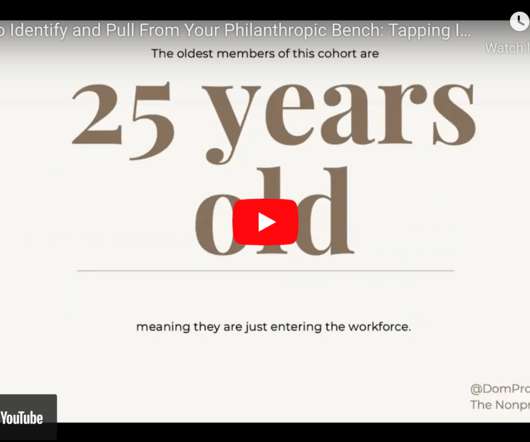NextGen philanthropists and the transfer of intergenerational wealth
ASU Lodestar Center
OCTOBER 11, 2013
They are called "next gen major donors," and according to a recent report issued by the Johnson Center at Grand Valley State University and 21/64 , they will "have tremendous influence on the direction of and support for efforts to improve local communities and solve global problems over the next several decades.". Bjorhovde, P.O.












Let's personalize your content